
With the first mention of the lilac dating back to 1753, it's not surprising that the fragrant flowers are often considered old-fashioned-but that doesn't mean lilacs don't have modern appeal.
"Lilacs decorated the large estates of the founding fathers and have remained an American favorite for generations," says Melissa Finley, Thain curator of woody plants at New York Botanical Garden.
"For contemporary gardeners, lilacs are often associated with fond memories of mothers, grandmothers and aunts who grew these classic shrubs for their showstopping fragrance."
Get Growing
Whether you plant classic species like the common lilac or newer varieties like Pinktini lilac, choose a site with full sun and moist but well-draining soil; lilacs prefer a neutral or slightly alkaline soil pH. "A lilac in the right spot will require very little care in order to thrive," Melissa says.
Warmer winter conditions due to climate change could make it harder for traditional early-blooming lilacs to bloom in some areas, Melissa adds. Heat-tolerant varieties like Lilac Sunday, Betsy Ross and Old Glory are better adapted for warmer climates.
Scent-sational Blooms
Lilacs are "midseason bloomers," blooming in April to early June with pyramid-shaped clusters of petite flowers in shades of red, pink, blue, purple, yellow and white, lasting for around two weeks, according to Ruth Wendt, garden committee chair at the Hulda Klager Lilac Garden.
Bu hikaye Birds & Blooms dergisinin April/May 2024 sayısından alınmıştır.
Start your 7-day Magzter GOLD free trial to access thousands of curated premium stories, and 9,000+ magazines and newspapers.
Already a subscriber ? Giriş Yap
Bu hikaye Birds & Blooms dergisinin April/May 2024 sayısından alınmıştır.
Start your 7-day Magzter GOLD free trial to access thousands of curated premium stories, and 9,000+ magazines and newspapers.
Already a subscriber? Giriş Yap

Basics of Hydroponics
Use these top tips and plant picks to have a successful soil-free garden
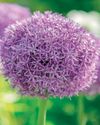
Rooted in Resilience
These hardy perennials will thrive in most zones
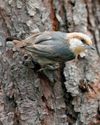
Social and Supportive
Brown-headed nuthatches take a helpful approach to raising their young
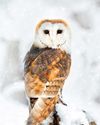
All About Owl Pellets
And why you should give a hoot about them
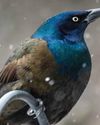
Ask the Experts
Advice from our pros about houseplants, bird feeding and more

BRING THE OUTDOORS IN
Making a terrarium is about as close as you can get to a Zen DIY project. Once you have gathered the proper materials and squared away your plant selections, it's as simple as layering it all together and watching your mini ecosystem thrive. Here, I'll walk you through my foolproof process and cover all the required elements for good filtration, healthy soil, strong root growth and resistance against fungus and disease.

GROW THIS. NOT THAT
Six easy-to-grow houseplants—and six that may not be the right choice for you

Winter MAGIC
Forecasts may be frigid, but grab your binoculars because birding opportunities are still incredible
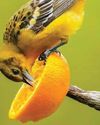
Sense or Nonsense? - Why some birds can taste and smell - but others can't
Does a porcelain berry taste like a blueberry to a gray catbird? Does a block of lard smell like frying bacon to a northern flicker? The short answer is no. While some avian species do have a well-adapted sense of taste or smell, they can't distinguish between flavors and odors the way humans can. They're not picking up every ingredient in the suet you put out, says José Ramírez-Garofalo, an ornithology researcher at Rutgers University in New Jersey and the director of Freshkills Biological Station in Staten Island, New York.
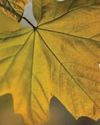
Maple Mania - Amazing facts about this fall foliage mainstay
Amazing facts about this fall foliage mainstay